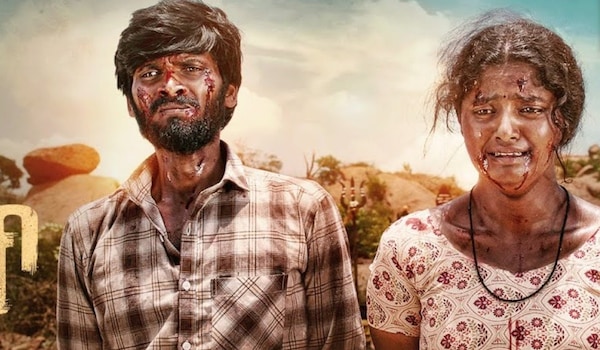Parari Movie Review: A social drama seeking to address multiple issues gets overstuffed with dramatic violence
Parari Movie Review: By taking both linguistic and caste pride as issues, the film attempts to focus on the arching problem of oppression but fails to do so.

Last Updated: 06.49 PM, Nov 19, 2024
Parari Movie Plot:
Maran and Devi are from the same village in Tiruvanamalai but come from lowered and dominating castes respectively. While several instances of caste clashes are prevalent in their village, the people of the place are also employed as laborers in a fruit juice factory in Karnataka, further prompting linguistic-based conflicts to happen.
Parari Movie Review:
Parari is a film that unabashedly talks about the caste and linguistic pride that people arrogantly show to oppress the less powerful. Early on in the film, we are shown a pig reared by Maran’s oppressed community, running astray into the streets of the village. The men, along with Maran, try to capture the pig, which also raises the tension in the caste-based society. If that is not enough, the next stop of the film is where the dominating caste community unleashes their wrath on Maran and Co. who have come to pray at a temple atop a mountain and chase them away soon. Now, if you are still not clear with the type of film this is, the next stop is how the Maran community’s certain meat-eating habit is being looked down upon, and as a punishment, the water to their village is cut off. And again, if you are still unclear about the film, there comes a climax that involves a group that undresses and assaults the lead pair black and blue. Parari is on a spree to show the wrath of oppression and goes overboard with it, and forgets to tell the message that has to come with it.
Parari meddles with two types of social conflicts, one on a linguistic basis, and the other on caste hierarchy. As the film begins with the latter, the group is soon recruited by a Karnataka-based juice factory where the Tamil laborers are caught in the patriotic group of the state, where linguistic pride takes over. The Tamils are bashed and the film gets into a murky situation of what it wants to tell. It eventually becomes a film that goes on to show the violence inflicted upon the oppressed, which seemingly makes it all about the actions and not the greater sadness that is hidden behind it.
The second half of Parari mainly concentrates on nationalistic pride in Karnataka, how the laborers from other states are being treated, and finally merges with a feud that is very well-known to run between Karnataka and Tamil Nadu; the Cauvery water conflict. By including a myriad of social-economical issues into one film, Parari even as it wants to talk about the outsider syndrome, fails to do so. Instead, it bites more than it can chew, and we are left in the lurch of understanding the seriousness of these issues. The climatic portions of Parari also take much privilege of the audience to show the brutality and violence, instead when the film should have dealt with a sensitive portrayal of the same.
Also read: Thalapathy 69 cast update: Bobby Deol to play villain in Thalapathy Vijay, H Vinoth’s film
Parari Movie Verdict:
Parari deals with two much-needed to be talked about issues. But by taking the responsibility to voice out for both, the film dilutes the understanding and its direction. Instead, it becomes a film filled with the noisy nature of violence.
Subscribe to our newsletter for top content, delivered fast.
